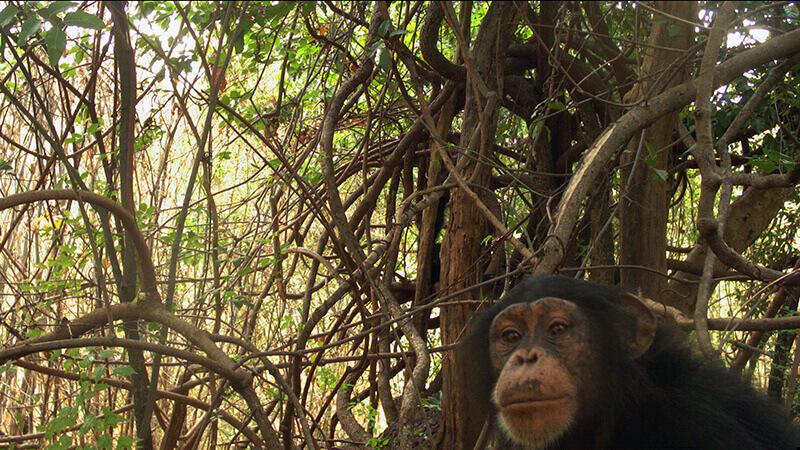Article featuring the project on Purdue University website.
In developing nations, national parks could save endangered species
Determining Effect of Anthropogenic Disturbance on Habitat Value for the Endangered West African Chimpanzee in a Savanna Environment at Fongoli, Senegal
Although artisanal small-scale gold mining (ASGM) is considered by many to improve the livelihoods of Senegalese people, its environmental impacts could be harmful to the health of endangered, western chimpanzees (Pan troglodytes verus) and their habitat. For this reason, we are testing for mercury pollution, a common consequence of ASGM, in essential drinking water sources for chimpanzees living in the vicinity of artisanal gold mines.

Water is a limited resource for savannah chimpanzees in Senegal. These chimpanzees drink from water holes almost daily during the dry season. Water is a scarce resource for people as well, including artisanal gold miners who use it for sluicing and panning. Water scarcity increases the likelihood of close contact between miners and chimpanzees. Moreover, miners vaporize mercury from gold-mercury amalgams in open-air conditions. This method releases mercury particles into the atmosphere that may eventually contaminate drinking water.
Mercury contamination has serious health risks to wildlife and humans, particularly when methylmercury, the most toxic form of mercury, is formed within the environment. Methylmercury exposure occurs through ingestion and can accumulate in animals at high trophic levels, such as chimpanzees. Health consequences from methylmercury exposure include damage to the immune, reproductive, and central nervous systems, and paralysis or death in severe cases. Moreover, observational data from field and laboratory studies have shown that mercury exposure may impact the growth, viability, development, reproductive success, and behaviour of animals. For these reasons, we need to determine if chimpanzees that occupy habitats near gold mines are drinking from water sources with abnormally high mercury levels. At this stage of the project, our main goal is to investigate linkages between mercury pollution and chimpanzee populations. These findings will enable chimpanzee conservationists to formulate better-informed responses to the mercury pollution problem in southeastern Senegal.
Article featuring the project on Purdue University website.
In developing nations, national parks could save endangered species